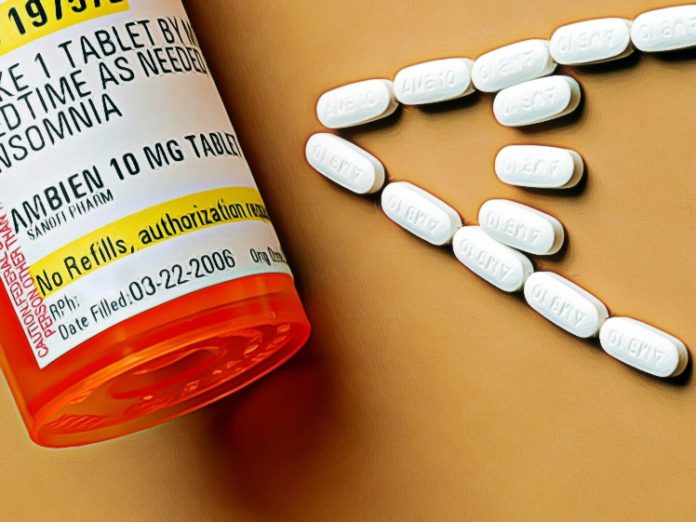Mixing Ambien and Alcohol
Ambien is the brand name for zolpidem, a drug commonly used to treat insomnia and sleeping problems. This drug, which is in a class called sedative-hypnotics, is only recommended for short term use under the supervision of a medical professional because it has a high chance of being abused. Ambien is considered a Schedule IV drug in the United States, meaning that, while it does have a legitimate medical use, it also presents a hazard of Ambien addiction. Read on to learn more about problems associated with Ambien addiction.
Ambien and Alcohol
Though Ambien is prescribed to help people fall asleep, many people will take Ambien and stay try to stay awake in order to feel a buzz. Ambien users report that after taking the drug, they feel relaxed, sleepy, lightheaded, and calm. Sometimes, users engage in bizarre activity that they have no recollection of later, like showering with their clothes on, driving under the influence, or eating or walking around while in a trance-like state. Some people who were convicted of crimes or were involved in accidents claim that Ambien was to blame.

Because tolerance to Ambien quickly builds, users may combine it with alcohol to enhance the high. While Ambient isn’t a traditional central nervous system depressant, it can have some similar effects. When combined with alcohol, which is a CNS depressant, they can exacerbate each other’s effects, leading to dizziness, confusion, sleepwalking, slowed breathing, or heart rate, and difficulty concentrating.
Ambien by itself can have a hangover effect, where users wake up still feeling impaired, and activities requiring alertness, like driving, can be impacted. When combined with alcohol, these effects can be even more pronounced. Users may engage in behaviors without being aware that they’re doing so, putting them at risk for serious injury.
Ambien Addiction
When prescribed as an aid for insomnia, Ambien does not put you to sleep, but it does put you into a state somewhere in between being awake and asleep, which makes it easier for most people to fall asleep. It is when people stay awake instead of sleeping that problems arise. In most cases, Ambien is only prescribed for a few days or a week or two at most, because a person will quickly build a tolerance to the drug. This means they need to take more and more to get the same effects. In addition, they may crush the pills so they can then snort or inject them instead of taking them in their intended form to get quicker results.
For some people, Ambien addiction becomes an issue. They enjoy the high that the drug provides or find that they are unable to relax without it. Instead of finding healthier ways to deal with stress and anxiety, they turn to Ambien to calm them down. When a person is addicted to Ambien, they may find that they crave it all the time or may try to mix it with other drugs or alcohol to get greater effects. This can result in problems with work, school, finances, or relationships.
Ambien Withdrawal
Because Ambien is not intended for long-term use, when people take it for a long time and then try to quit, it can have some disastrous effects. For many people, quitting Ambien results in rebound insomnia, irritability, mood swings, drug cravings, panic attacks, depression, stomach discomfort, or even suicidal thoughts. While seizures are uncommon in those withdrawing from the drug, they are still a real threat, especially for those who have taken Ambien for a long time, take high doses of the drug, or try to quit cold turkey.

If you’re trying to quit Ambien, this initial withdrawal period is difficult to get through without support. This is when many people relapse. Psychological withdrawal symptoms can be extremely distressing for those trying to remain sober and seeking treatment from a therapist or drug counselor is always recommended. They can help give you the support you need to be successful in your recovery.
Ambien Overdose
Tolerance to Ambien builds quickly, so someone who wants to achieve their desired results may have to take more and more. When someone takes a high dose of Ambien, they run the risk of overdosing on the drug. Some of the symptoms of Ambien overdose include:
- Slowed breathing rate
- Extreme drowsiness
- Slower heartbeat
- Confusion or delirium
- Irrational thoughts or behaviors
- Blackouts or serious memory lapses
- Coma
Some people may also experience visual or auditory hallucinations when they take a high dose of this drug. When someone overdoses on Ambien, seeking medical treatment as soon as possible is essential. While death is rare in the case of an Ambien overdose, the risk can be greater if the Ambien had been combined with other drugs or alcohol, and a doctor can help monitor the person’s condition in case it gets worse.
How Long Does Ambien Stay in your System?
For most people, Ambien will stay in their system for around 48 hours, though this depends on factors like your age, metabolism, how much you took, and how long you’ve been using Ambien. Ambien is a fast-acting drug, and you’ll feel its effects within a half-hour after taking it, with effects peaking in about two hours. There are also extended-release versions of the drug, which may take longer to work and cause effects for a longer period.
Seeking treatment for Ambien misuse or addiction is essential in order to start on a healthy path towards recovery. If you or someone you know is misusing Ambien, there are plenty of treatment options available to you to help maintain sobriety. Drug addiction counseling or mental health counseling can help you deal with the effects of anxiety and insomnia in a healthy way without the need to turn to drugs. These treatment options can identify other issues that may be at the root of your problem and can help you work them out so you can learn to cope with the stress of life in healthier and more fulfilling ways.
Sources:
https://medlineplus.gov/druginfo/meds/a693025.html
https://www.ncbi.nlm.nih.gov/pmc/articles/PMC3505131/
https://www.cbsnews.com/news/er-visits-tied-to-ambien-other-insomnia-drugs-up-220-in-recent-years/
















